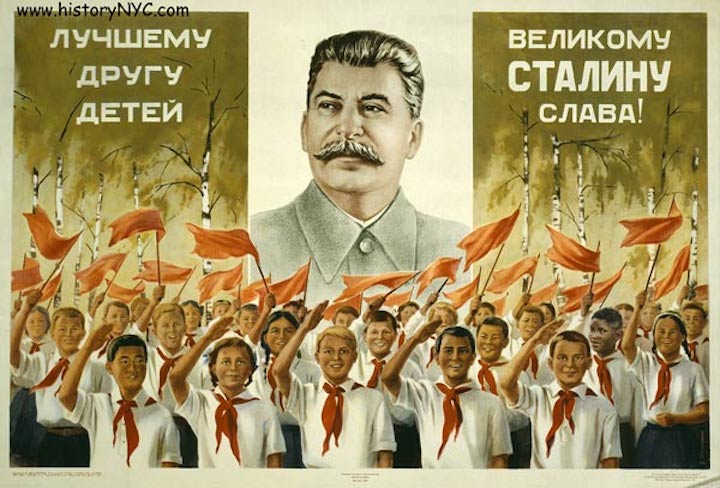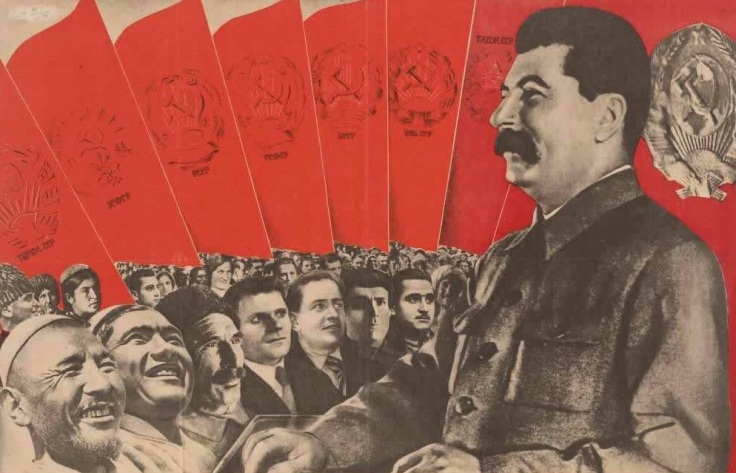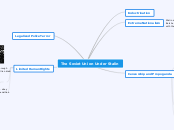The Soviet Union Under Stalin

Indoctrination
Schools had children march and pledge allegiance
to Stalin.

Youth pioneers in school was
a group that also taught
communist ideology.

Workers and farmers were lectured on the importance of
dedication to the Communist party.

Extreme Nationalism
Stalin started as a
Bolshevik, and worked
with the Communist party.
In schools, those with 'alien'
tendencies (ex. not communist enough)
were treated poorly.

It is important to note that
communism is generally anti-nationalist,
but Stalin did reject this sentiment at times
when he needed nationalism to further his agenda.

With the eminent threat of World War II,
the threat of Nazis had Stalin create the idea of a
'patriotic' Mother Russia, completely contrary to marxist
ideology.

Censorship and Propoganda

During Stalin's 5-year plans,
propaganda was used widely
to encourage workers to be
diligent.
Costly projects that served no purpose
were used as propaganda to prove progress
to journalists outside the Soviet Union.

Stalin also had control of radio, newspapers, and
used this to pour out propaganda praising his regime.
Writers in unions were
expected to exalt Stalin.
When they failed to do so,
they were kicked out and could
not find new work.

Legalized Police Terror
Stalin did not spare his own
party members either. Those who
dared to criticize him were 'purged' or
removed from the party.

A high-ranking official, Serge Kirov
was assassinated during Stalin's reign,
most likely by his agents.
His death was used to start what
Stalin used as a catalyst to start the 'purge'.

Another party member, Nikolai
Bukharin was tried and executed.
Like many, Stalin and his followers
attempted to torture or coerce him
into saying he committed misdeeds.

The purge was an event that spanned from
1934-1938. Millions of citizens were rounded up and
arrested. Many went on trial and were killed.

Limited Human Rights

During Stalin's attempts at
increasing farmer's yields through
collective agriculture, 10 million died.

This was because many farmers
opposed collective agriculture,
especially prosperous farmers
known as Kulaks. They burned their
crops and slaughtered their livestock.

A government crackdown saw millions
of kulaks executed or sent to Siberian
labour camps.

Under collective agriculture,government seized farmers' lands and forced them to give a certain portion of harvests to the government.
s
